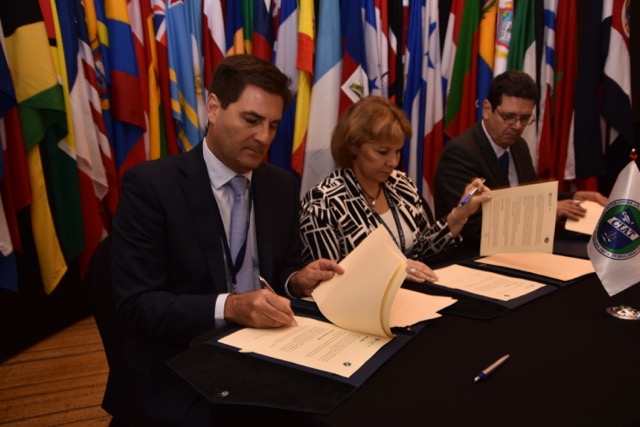This line of work is consistent with the United Nations Agenda for Sustainable Development (2030 Agenda), which proposes a review of the role of fiscal policy in Latin America

The EUROsociAL+ programme of the European Union is cooperating with the governments of the countries of Latin America to contribute to improving social cohesion through public policies oriented towards reducing disparities, gaps and inequality. For proper development of these policies, one of the requirements is sufficient funding and processes with the necessary quality. That is, to “collect more, spend better”, in the words of the European Union strategy, to assist the partner countries to establish just and efficient tax systems.
In this framework of EUROsociAL+ and EUROCLIMA+, they have sponsored a collaboration agreement between the Inter-American Centre of Tax Administrations (CIAT) and the International and Ibero-American Foundation for Administration and Public Policies (FIIAPP) to promote the exchange of experiences, know-how and good practices between the tax administrations of the European Union and Latin America, as well as between the Latin American administrations themselves.
This agreement, signed by FIIAPP director Pedro Flores and the executive secretary and president of the CIAT governing board, Marcio Verdi and Marta González Ayala, respectively—taking advantage of the technical conference that the latter institution is holding in San José, Costa Rica—will provide the tax administrations of Latin America with the necessary tools to fight tax fraud and evasion, improve the efficiency and equity of their tax systems and, in general, to improve tax policies in both revenue collection and the quality of public spending.
“FIIAPP, within the framework of the EU-CELAC cooperation programmes it leads, relies on CIAT as a strategic partner and facilitator in supporting fiscal policy reform in Latin America”, stated Pedro Flores at the signing ceremony for the agreement.
This EUROsociAL+ line of work is consistent with the United Nations Agenda for Sustainable Development (2030 Agenda), which proposes a review of the role of fiscal policy in Latin America, as set out in the fourth target of Sustainable Development Goal 10 to “adopt policies, especially fiscal, wage and social protection policies, and progressively achieve greater equality ”, and in the first target of SDG 17 to “strengthen domestic resource mobilization, including through international support to developing countries, to improve domestic capacity for tax and other revenue collection”.
Moreover, with this agreement FIIAPP and CIAT, through EUROsociAL, also rise to the challenge posed by the new European consensus on development, which has highlighted the importance of mobilising and utilising domestic resources to achieve inclusive growth, the eradication of poverty, and sustainable development.
Along these lines, and deepening its commitment to the Latin American region and European cooperation, FIIAPP has proposed another collaboration agreement with CIAT for exchanging good practices, know-how and experts on climate taxation within the framework of the EUROCLIMA+programme, in which FIIAPP participates alongside other EU agencies: AECID, GIZ, Expertise France and AFD.
EUROsociAL+



